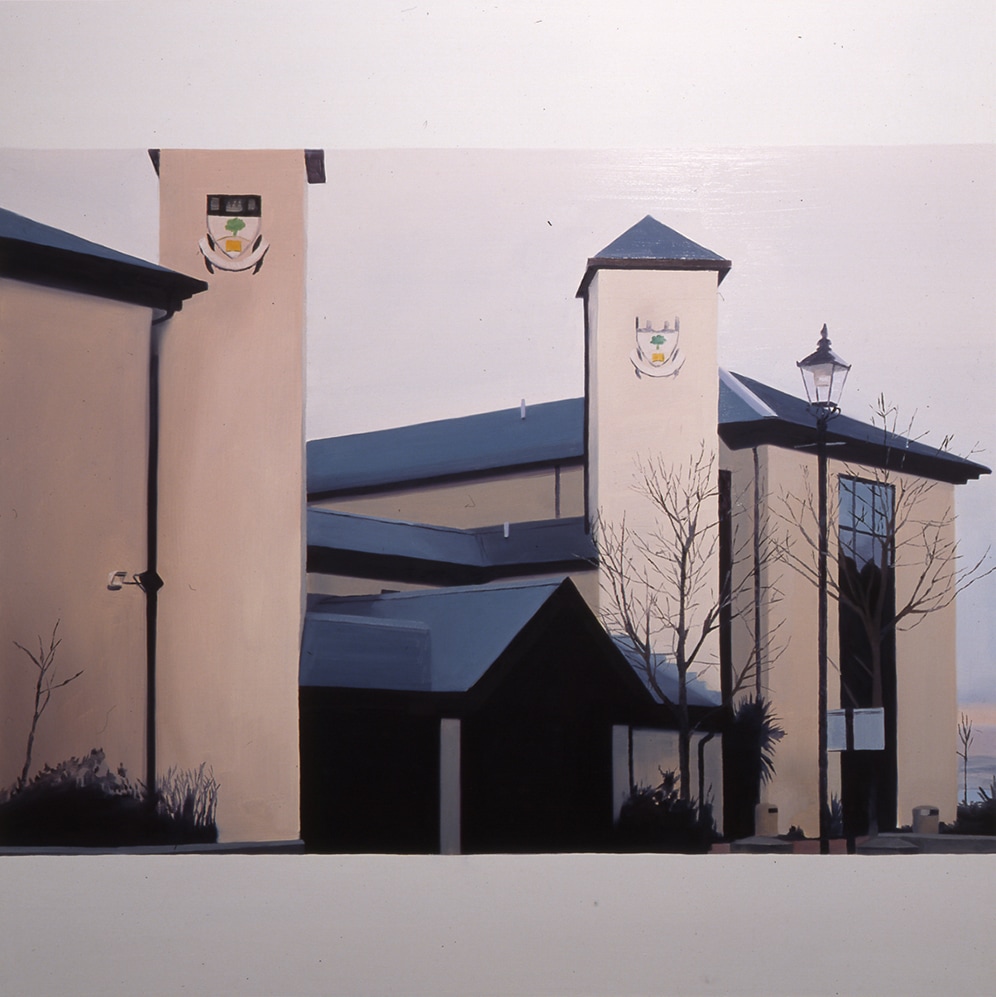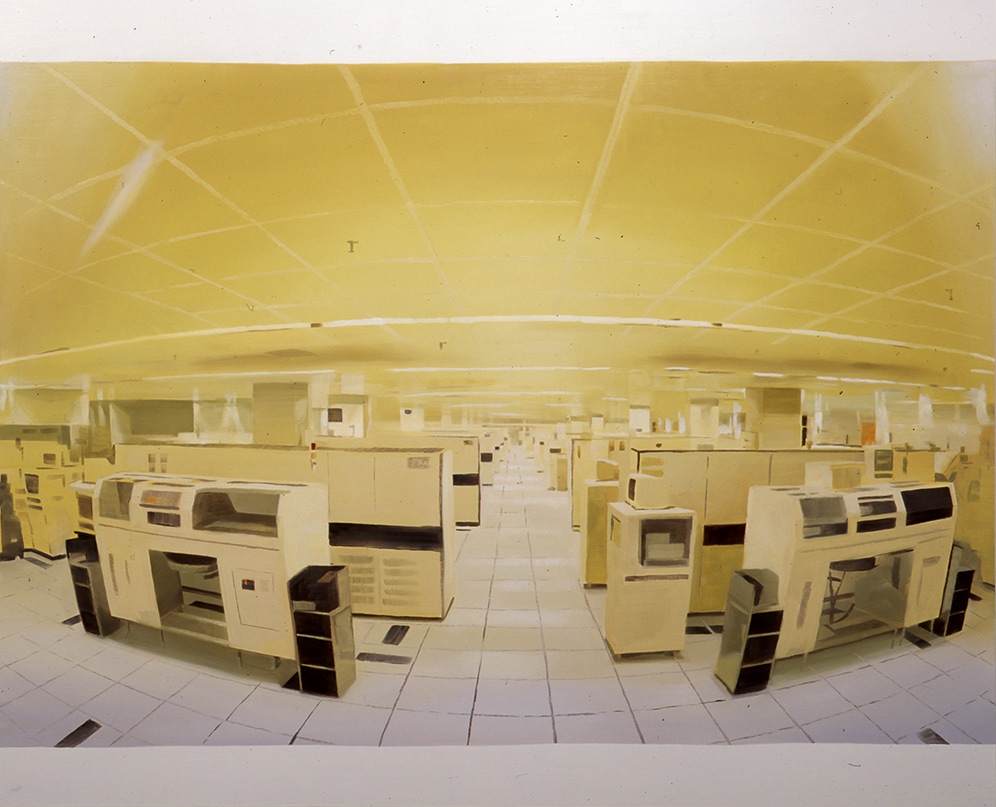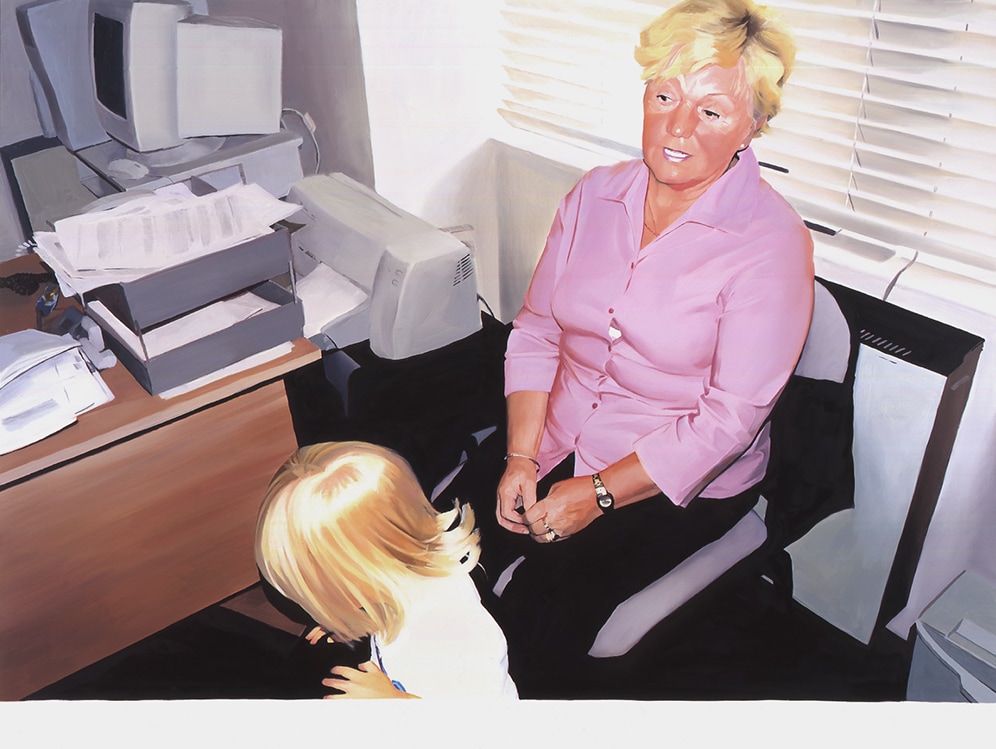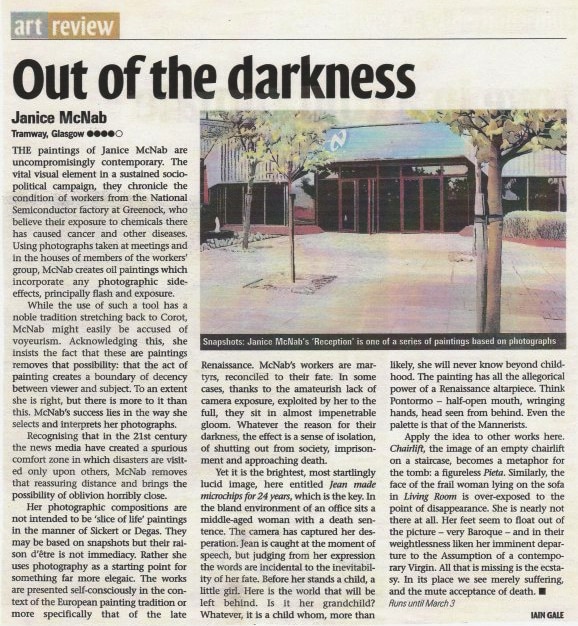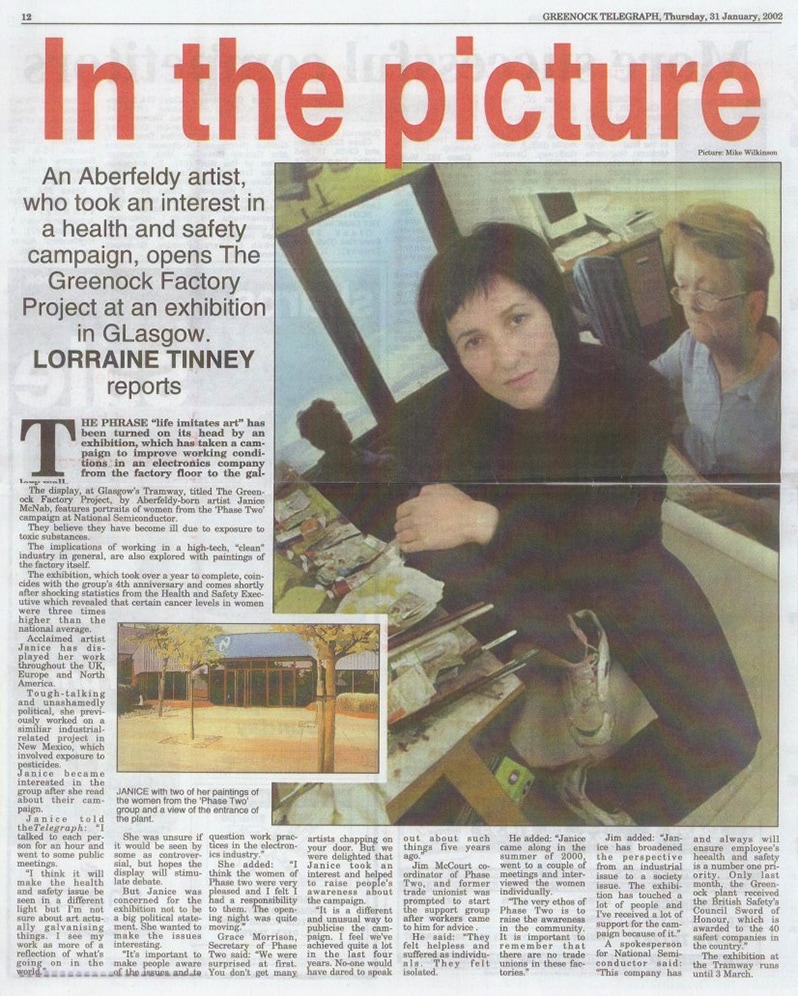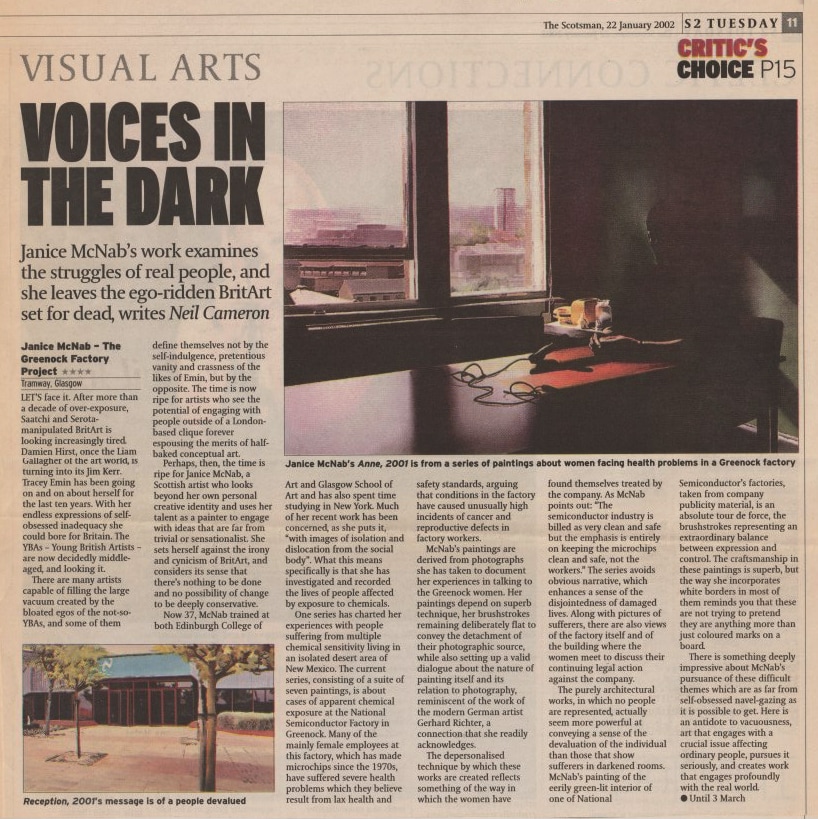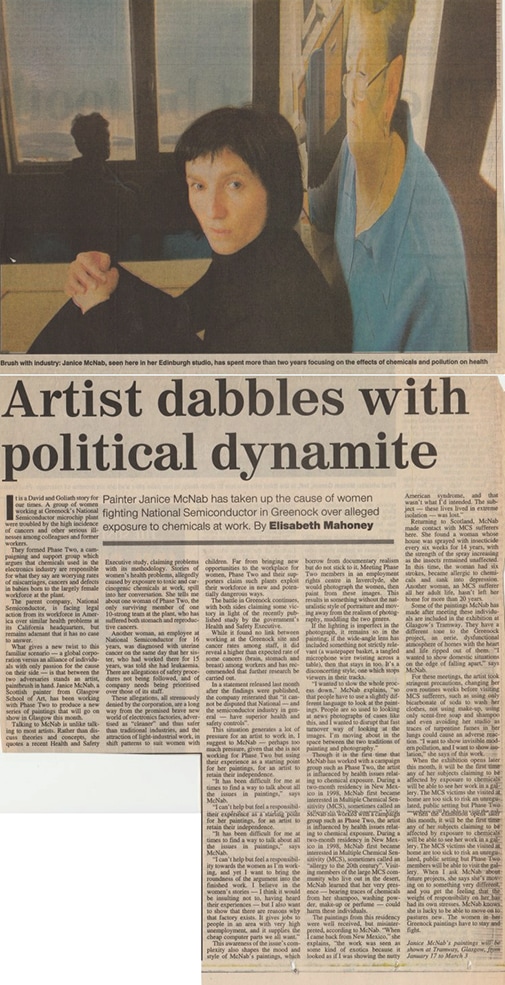Janice McNab: The Greenock Factory Project, Tramway, Glasgow (2002)
Janice McNab: The Greenock Factory Project, Tramway, Glasgow (2002)
This wall text accompanies the seven paintings when exhibited.
Greenock is an industrial town on the River Clyde. The once prosperous community suffered years of economic decline with the collapse of the ship building industry. Now it is part of Silicon Glen, a cluster of electronics companies located in central Scotland. In 1972 National Semiconductor opened a microchip manufacturing plant. The company initially offered employment to about 1300 people and maintained a policy of positive involvement with the community. They make regular contributions to local schools and have funded a state-of-the—art conference suite within the James Watt College in Greenock.
In January 1998 a group of women in Greenock founded Phase Two, a support group for local workers at the National Semiconductor factory. Phase Two believe that the chemicals used in the manufacture of microchips at the factory are responsible for causing cancer, miscarriage and reproductive defects in workers. The claim is denied by National Semiconductor and is now the subject of a court action for compensation in California, where the global company has its headquarters. Phase Two estimates that at least 200 workers may have been affected by exposure to chemicals in the factory cleanrooms. They allege that some deaths in the workforce are as a result of this exposure.
Helen Clark is the chairperson of Phase Two. She worked in the National Semiconductor cleanroom for 6 years, until 1985, when she was diagnosed with stomach cancer. She was 39. All five other workers on her shift have since died. Grace Morrison is the secretary of Phase Two. She worked in the cleanroom from 1980-1996, when she was diagnosed with uterine cancer. Her sister, who worked in the cleanroom for 15 years, was diagnosed with leukemia on the same day. Another colleague in her six member work crew had already died from uterine cancer, and a further two were very ill. Anne Duddy worked in the cleanroom for 12 years, until 1995. During that period she had daily migraines and kidney infections and suffered a late miscarriage.
National Semiconductor believes the lawsuit filed against the company is without merit. They reiterate that there is no scientific evidence linking them to this case.


